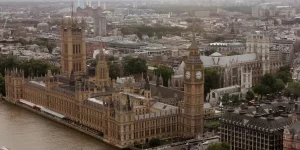1. Failed nuclear projects cost National Grid £137 million
Over the past year, the grid operator has lost 31 per cent of its profits before tax, down to £1.84 billion. The failure of nuclear projects such as Moorside and Wylfa are cited as the main cause for the drop. Despite this, CEO, John Pettigrew, remains positive saying that ‘We made good strategic progress across the Group last year, delivering £4.5 billion of investment driving strong asset growth of 7.2 per cent, all while maintaining reliability and safety across all of our networks.’ Notable areas of investment include the creation of a new overhead line between Canterbury and Richborough and 21 km of line to connect the Nemo interconnector to the grid.
(Energy Live News, National Grid: Shelved nuclear energy projects take £137m out of profits, 16 May 2019, Link)
2. Preparations in place for orderly Euratom exit
The Department for Business, Energy and Industrial Strategy has released its fifth quarterly update on Euratom exit. This report outlines the progress on the Government’s implementation of its Euratom Exit strategy including progress on EU negotiation, domestic operational readiness legislation and international agreements. Key developments include confirming the terms of the UK/Japan 1998 Nuclear Cooperation Agreement post-Euratom and publishing the Shipments of Radioactive Substances (EU Exit) Regulations 2019, the Nuclear Safeguards (EU Exit) Regulations 2019 as well as the Nuclear Safeguards (Fissionable Material and Relevant International Agreements) (EU Exit) Regulations 2019. In a written statement, Andrew Stephenson, Minister for Business and Industry, confirmed that the Government now has all the necessary measures in place for the UK nuclear industry to continue operations with certainty in all situations.
(Department for Business, Energy and Industrial Strategy, Report to Parliament on the Government’s progress on the UK’s exit from the Euratom Treaty, 15 May 2019, Link)
(Andrew Stephenson, Hansard, 15 May 2019, Col. 8 WS, Link)
3. Decline in nuclear prompts EDF revenue drop
EDF Energy has seen their first-quarter revenue drop €76 million compared to last year. They are citing a decline in nuclear generation, the suspension of the Capacity Market and in the introduction of the default tariff cap as potential causes for the drop.
(Paper Name, 14 May 2019, Link)
4. £1.1 million business incubator funded by Sellafield
Sellafield has decided to spend £996,000 of its social impact budget on a business incubator in Whitehaven. This is part of Sellafield’s wider £2.6 million investment in the Whitehaven Buzz Station scheme. The aim is that the project will support aspiring business owners and help drive innovation in the local area.
(Sellafield, Sellafield funding brings new business unit to life, 13 May 2019, Link)
5. Further investment in nuclear and low-carbon energy needed to reach Paris agreement targets
A report published by the International Energy Agency shows that investment in low-carbon energy needs to more than double is the world is to reach its Paris agreement climate targets. Other insights are that overall energy investment is not keeping up with consumption and that investment in electricity grids has been falling for the past two years. The latter is of particular concern given electricity grids are critical for a clean energy transition to occur.
(World Energy Investment 2019, International Energy Agency, 14 May 2019, Link)
Brevia Consulting provides straightforward political advice and support to businesses and organisations.
Discover how Brevia can provide public affairs support to your organisation by calling the Brevia Energy Team on 020 7091 1650 or emailing contact@brevia.co.uk.




